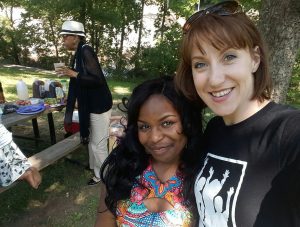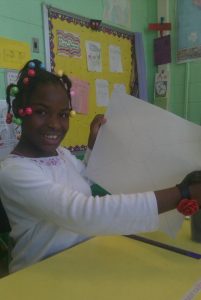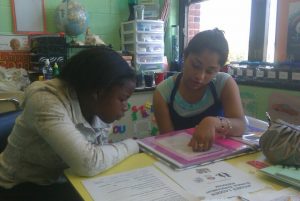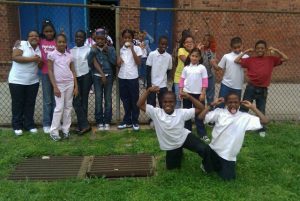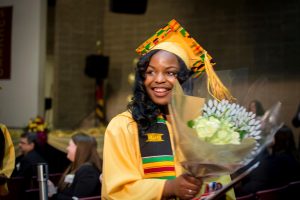My virtual reality is to be able to bring the education to those who can’t afford to take their kids to school and for foreign countries in need of education. Education is not always free unlike the United States, people in foreign countries struggle to put their kids in school because of the cost to attend school. Not only am I talking about foreign countries but also in rural areas where there is so much poverty. It’s all messed up and the parents can’t afford to buy their kids uniforms and books so they can be able to attend school. According to dosomething.org it says, “In Sub-Saharan, 11.07 million children leave school before completing their primary education. In South and West Asia, that number reaches 13.54 million.” that is a lot, great minds are being wasted and with the education in place they can achieve greater things in life. Another example, according to elitedaily. com it mentions, ” In Papua New Guinea 60 percent of females are illiterate and that number is even worse in more rural areas. Primary education remains neither free nor compulsory, while violence against women is almost a mainstay.”So to be able to give them a chance of a life time and changing lives, lets bring Virtual reality education to them. They don’t have to pay much but to get the cardboard set, headphones, and an ipad that will have all the subjects downloaded already. In order to have those materials, we as a community will help fund raise or donate and also with their help to make this possible. With the virtual reality coming to life, can be able to help them attend school where ever they are and not have to worry about paying to much. They can be able to access any subjects that they wish to learn. With that being said, the kids can have another shot to changing their lifestyle and accomplishments of success. With the education it will give those children hope to hold on to.
Author: jndayizeye
Does Virtual Reality Really has the Potential ?
Virtual Reality has the potential to change the education system at all levels including the school system . There’s always new inventions that benefits human beings in today’s society for example, Virtual Reality has become of a new way to life, a new way to exploring new things, a way to take in more information, and getting away from this crazy world. Virtual reality more so creates less communication skills, laziness, unhealthy, and the ability to function well.
In Ready Player One by Ernest Cline, “The OASIS would ultimately change the way people around the world lived, worked, and communicated”. Another way to living life was inside of a video game, where it had everything that you desire in whats so ever including going to school and having jobs. People can just stay at their house and log into the OASIS and spend most of their time there. In Virtual reality of the OASIS it builds less communication skills and people being lazy to do other things in the real world. They would sit their for hours and never really have to do much. Wade for example his life is basically inside the OASIS. Thats where he makes friends and be whoever he wants to be. OASIS is a gateway for him. But putting that aside OASIS is not real its a game for god sake! it is unhealthy for you.
According to Ferris Jabr he mentions, ” People also like to have as much control over a text as possible -to highlight with chemical ink, easily write notes to themselves in the margins as well as deform the paper however they choose”( The Reading Brain in the Digital Age: The Science of Paper versus Screens). With the reading on paper you can be able to bring out your thoughts into the paper and jotting down what you think about the article or the reading, you can make it your own. Instead of reading online where you tend to skim and not really dig deep into the reading as much, you tend to miss out a lot of important details. I tend to read and really understand the reading on paper, because I can be able to make my side notes and really be able to annotate that reading. Virtual Reality has taken that away, now there’s e-books, smartphone, internet where you can be able to read and highlight things as well.
In Ready Player One by Ernest Cline Wade whole life is on the OASIS a video game that was created by Holliday and Morrow. He didn’t do much in the real world he basically hated it and didn’t want to associate with it. All he cared about was finding that egg and basically did everything on the OASIS. Who would spend there whole entire life on a video game? Your emotions and physical attraction really doesn’t associate in the OASIS, you loose your five sense. Therefore I wouldn’t be able to associate with the OASIS I wouldn’t be able to take care of my physical form in the real world. I would be useless to doing things and am more into hands on and really doing what I love to do. Where I know it will be real instead of being inside of a video game.
With Virtual Reality it changes everything and the way we learn and communicate. It reduces the task that we have to do individual and makes it easy for us to do. Going to school in the OASIS, how would you really know that you grasping the materials if you can’t even ask questions. You are just programed to sit and listen. We wouldn’t be able to have that type of attraction that we would have in the real world, it will just gives us something we want to see instead. My point is Virtual reality has the potential to change the education system if we let it control us.
Myeisha98
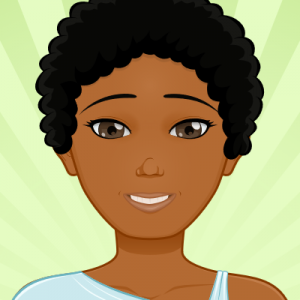
I picked to be a female because I strongly believe that we been pushed around and seen less to do somethings we can’t do in the real world. I represent for the ladies who seems to put themselves down and always limiting themselves to do big things. I would be able to do the impossible in the OASIS and uplift the confidence for the ladies to go and do wonderful and great things. We are not weak, we are strong, caring, and loving. Lets go ladies!!
Level 2:Provocation
Wade is back into the real world after he was dumped by Art3mis, he starts to give us a view on what he do outside the OASIS. He orders his food online replacing his door with impenetrable airlock. He spray paint his apartment windows in order to keep the sunlight out. To keep him company he has Max who is a butler from his system software agent. In order for him to stay in shape and be able to fit into his haptic suit, he had to shave all his body hair including his eye brows. He workout out every morning since he was starting to gain weight, he would do sit-ups, crunches, and pushups. He only takes an hour each day of his morning to undergo his routine, the rest of the day he spends it on OASIS.
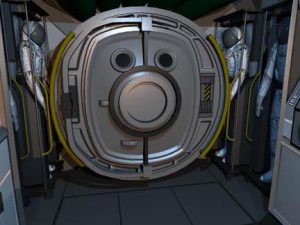
Would Wade ever go outside into his real world? Would he be able to adapt into the sunlight since he basically lives in the dark from his apartment? How is Wade able to afford all his supplies and food if he doesn’t go and work? where does the money come from?
The Generation of Digital Age


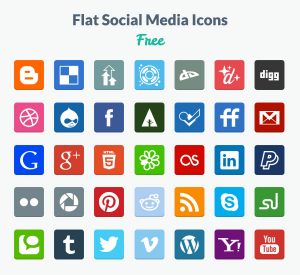
The digital age has built such a foundation of information that society will need to adapt to advanced technology in order to change and overcome communications challenges. Is technology really a benefit to the society? Technology has wiped out completely the way our ancestors used to find information and entertainment, including reading. Technology is now widely spread in the twenty-first century that it is changing our ability to read and communicate. We now are using social media, the Internet, and our smartphones to stay in contact with friends and family. Digital technology has now created distractions in classrooms and home. In order to adapt to the digital age, we need to know how to use it wisely.
Gaining more information really depends on whether you are able to grasp it the moment you first lay your eyes on it. The article “The Reading Brain in The Digital Age: The Science of Paper Versus Screens,” by Ferris Jabr, says that reading on paper is better than reading on a screen like a computer, tablet or TV. Furthormore, Jabr said, “Compared with paper, screens may also drain more of our mental resources while we are reading and make it a little harder to remember what we read when we are done” (“The Reading Brain in The Digital Age: The Science of Paper Versus Screens”). With that being said, reading on a screen can reduce your brain to not memorize more information than you can possibly remember. You have less chance of gaining new knowledge of information, which will decrease the chance of incorporating it into your daily life. This is important to consider in the classroom because it will affect students’ ability to learn and grasp the information taught in class.
In my life, I have experienced a time where I was able to read on screen but when came to testing, I failed. I was reading and taking sample questions on a computer for my driver’s permit, instead of reading the information in the booklet. I was so confident thinking to myself that I can be able to pass the test the moment I walked into the testing room. While taking the test, I however wasn’t able to remember as much from the reading online, and I started to overthink through the questions. I failed right then and there, missing four questions. Farris Jabr said, “And in a 2003 a study conducted at the National Autonomous University of Mexico, nearly 80 percent of 687 surveyed students preferred to read text on paper as opposed to on a screen in order to “understand it with clarity” (“The Reading Brain in The Digital Age: The Science of Paper Versus Screens”). With this study, reading from the booklet I will be able to understand it with clarity and I would then be able to pass my drivers permit test without missing four questions. I then came up with a new method of reading and learning from the driving booklet, and so then I was able to remember most of the material. The advantage that I had reading a booklet was that I was able to highlight it, and take notes, while reading on the screen I was not able to do the same thing. I went and took the test again, and this time, I was able to pass the test, so as you can see reading it on paper reading over reading on screen really makes a huge difference. In the classroom, both paper and technology can be used to benefit students.
With the technology, though we develop new skills, it can also create distractions. According to the article by Jabr, “As digital texts and technologies become more prevalent, we gain new and more mobile ways of reading-…”, (”The Reading Brain In The Digital Age: The Science Of Paper Versus Screens”). So with the amount of technology in society, people develop new ways of reading, for example, reading through the Internet, eBooks, emails, texts, and tablets. In this generation, smartphones are really popular; they have everything on them. People tend to use their smartphones more frequently. I also own a smartphone, and I tend to do everything on it; it is like my mini-computer. I am able to download different kinds of social media, like Facebook, Twitter, Instagram, Snapchat, Wassup, and more. Schools can adapt by incorporating some of these programs into their routine.
I communicate using those apps. I tend to text more instead of calling people. This is the new generation, as they say. My grandmother, who is still new to this generation of technology, is learning how to text because that’s the only way she can reach me quickly. But with this technology spreading globally, we are losing the capability of communicating in person with one another. We are so distracted by all this technology and media that we tend to lose some of the skills that were taught in schools. According to the article by Godhill, “And Mark’s research has found that after being frequently interrupted, people often develop a short attention span and begin to self-interrupt” (“Neuroscientists say multitasking literally drains the energy reserves of your brain”). The problem is that we really do not realize how technology is affecting us physically and mentally, because we have been doing this for so long that using technology has come to second nature to us.
People are not only not focusing on one thing with the presence of technology, but they are tempted to do other things. As LaFarge says, “The internet’s flood of information, together with the distractions of social media, threaten to overwhelm the interior, space of reading…” (The Deep of Digital Reading). Even though the technology provides a lot of information, there can be also distractions, especially in the classroom. For example, while reading online, there could be some ads, links to other tabs, and commercials that would draw your attention away from your reading. It will put your mind to wander off and forget the reason you were there in the first place. This happened to me when I was researching articles that could help me with my papers. I came to a stop when I saw this commercial for a new game that looked very interesting. I clicked on the link and it took me to another link that had the game. I wanted to download it, and when I did, it took a long time to download, and at that moment, I realized that I needed to go back to research articles. As you can see, distractions on the Internet can really take away your attention just like that.
Technology alone does not create distractions; our brain have been wandering off from the time we were born. According to LaFarge, “The fear of technology is not new. In the fifth century B.C., Socrates worried that writing would weaken human memory, and stifle judgment” (“The Deep of Space of Digital Reading”). Even from a long time ago the Greeks of Socrates’ era were even worried about our ability to write and read, and that it would weaken us to a point where we start to judge different things. I suggest that people use technology not only for school assignments, but also for work wise and communicating with people who are long distance. Also they can use it to have good time management; there’s always a time for everything.
It really falls on how we use technology in our daily lives. The way we use it can be beneficial or not beneficial to us, but as you can see, technology gives us the information that we really need and creates more skills that we can be able to gain from it. It is just the matter of the amount of time we spend on technology and on reading books. Reading a book on-screen really works with some people, and with others not at all. Not all human beings are alike; there are others who can be able to take advantage of technology, for example, being able to use technology to gain full new information, know what’s going on in the world, or even use as a tool for successful communication. There are others who go overboard with technology, for example, spending time on social media, bullying others and tending to lose the skills of communication. Schools need to consider both the beneficial and negative aspects of using technology in the classroom.
Rhetorical Analysis “The Deep Space Of Digital Reading”
According to bookbrows.com, it says, an American novelist, essayist, and academic Paul LaFarge was born on November 17, 1970, and is now forty-six years old. He has published five novels so far, and the most recent one is “The Night Ocean” published in 2017. His essays have been on outlets such as The Village Voice, Harper’s, and The New Yorker. Paul Lafarge is not only an author, but he has also received awards from the Guggenheim Fellowship for Creative Arts, US, and Canada(“Biographies”). I’m currently reading one of the articles by LaFarge “The Deep Space of Digital Reading”. This article was originally published in our “Space” in January,2016.(“last page”)
In this article in Nautilus “The Deep Space of Digital Reading” the context are based on different categories such as animals, psychology, newsletter, blog and other media webs. People who are also interested in Nautilus they can be more likely to read “The Deep Space of Digital Reading” as they do for other articles that deal with animals, scientist research and inventions. People can have easy access to this article through Nautilus itself, their phones, tablets, and computers wherever they are. Paul LaFarge primary audience is people who are neuroscience, other journalist, inventors, and psychologist. His secondary audience is people who are reading just for a class or people who are researching on the same topic or reading for fun.
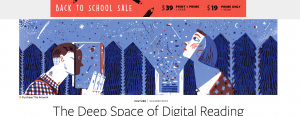
The genre of this article, Paul LaFarge uses big bold prints to point out some important information that he wants the audience to think about throughout the reading. For example, he uses quotes, opinions using italics, pictures, and big titles. He uses this picture to distinguish between reading online and on paper. Before in the 18th century, there was not a lot of books for people to read all together, so they would take their time to read them. They will develop greater reading than just reading online where you can read as much as you want and not retain a lot of memories.
Paul LaFarge really makes his argument in so many ways. He uses other historians, phycologist, and writers to develop his sense of claim and argument on how reading online and on paper can decrease human minds in different ways. He also has a way to grab the reader’s attention by using images, big prints, quotes and starting the article with his opinion. Not only that, he brings proof to support his claim by adding what other authorities such as scientist who has done experiments on a human brain.
The purpose of this article is to inform the readers that the changes of styles of reading were not caused by technology. It was already changed from a long time; our minds were all over the place even reading from books. LaFarge states a quote from the article saying, “Critics like to say the Internet causes our minds to wonder off, but we’ve been wandering off all along.” Just how people read on the internet, their eyes start to wonder off in different directions. They are distracted by many things on the internet, such as the adds, thinking about something else and just skimming, instead of taking the time to read the text people do that in books too. In the article “ The deep space of digital reading” says, “ When we read, the eye doesn’t progress steadily along the line of text; it alternates between saccades-little jumps-and brief stops…”(pg.1) So the technology and the book are no different, our minds tend to be distracted at any time while we read. There’s always a distractions.1
In conclusion, the article, “ The Deep Space of Digital Reading” was very interesting and convincing. I was so shocked on the way LaFarge backed up his claim. He not also brought his experience on the table but brought some research that he also made to back him up. The comparison between reading online and on paper was very astonishing. The great word choices that he used and print not also grabbed my attention but also made me want to continue reading. LaFarge article persuades me that it is always two sides to each individual story and we should not look at only one but the other as well.
A life Changer
On June 10, 1998, I, Jacqueline Ndayizeye, the daughter of Nyawenda Jonasi and Capitolina Ndayibanje, was born in Mukugwa in a refugee camp in Tanzania. My last name means “Imana wizeye” translating to “Worshiping the glory that God gives in life”. My family cherished everything that they had and always helped others, even if they did not have much themselves. As I started to grow up, I realized the capability of going to school in Tanzania was out of the question as my family didn’t have enough money to put me in school. My father tried and I started preschool, but I didn’t get to finish.
When my family and I came to America in the middle of spring 2004. We barely spoke any English let alone knowing how to read and write. The International Refugee Committee (IRC) and the Refugee Youth Program (RYP) was able to take us in and help us settle in America. The environment and the community was very new to me. It was filled with different types of people, whereas before I only knew people like me. But in America, it was like a rainbow of so many different things. It was very shocking to me. I remember the first time I saw snow, which I had never seen before in my life. I thought it was another way of how America received rain. It was so white, like clouds in the sky. I didn’t know how cold it was until I couldn’t feel my feet. I cried out to Mama that it felt like a bee sting.
Nevertheless, the RYP helped put us into schools. My aunts and uncles, and myself. I was so excited to go to school. I wanted to learn so much even though I didn’t speak any English. I knew it was going to be hard to communicate but that didn’t come to my mind at that time. The excitement was exotic.
As I entered the school building, I felt a rush of light and noise far ahead. Children like me, and others older than me, pushing and shoveling. I thought to myself why are they in such a hurry. Ms. Kursten who worked at the RYP took my hand and lead me into a classroom. She bent down to me and started saying things that I had no clue meant. The only thing I could do was stare into her mouth and see how her mouth moved every time she spoke. She then smiled and I kindly smiled back. I stood in the corner while she was talking to this lady. She was middle aged and wearing a long black skirt with a white shirt, her lips colored in red, short black hair, and I remember thinking she was tall as a tree. I looked around the room and I saw different kinds of letters hanging off the wall, stickers, game boards and two desks. I soon found out that the lady’s name was Mrs. Jordanna and that she was my ESOL(English as your second language) teacher.
Mrs. Jordanna taught me a lot of things and I began speaking English little by little. As I learned how to write, she gave me words to trace and told me to sound them out. She would point to an object and say words that I believed was that object. I would then try to repeat after her. It took me a while to process everything but I was so excited that I would always go home and show my family what I learned at school.
I would turn on the television and watch my two favorite shows, The Magic School Bus and Teletubbies. In those shows, there were things that I was able to manipulate and I would go to school the next day and try to say the new words I learned. But, some of them I couldn’t pronounce correctly and other kids would laugh at me, so I kept my mouth shut.
There were so many ways I was able to learn to read and write. Since English is not my first language it was very hard. It took me couple of years to learn it, and I still have trouble from to time. But through the years, kindergarten to fifth grade to be exact, I had ESOL which was helpful. In order to pass the ESOL class, I had to take a test and unfortunately, I didn’t pass. But, my time in ESOL gave me the opportunity to go to a boarding school. In that boarding school, they didn’t have any ESOL classes so I struggled. In English class I strived to do better with my reading and writing. I started to read lot of books, write poetry, journaling, and asked a lot of questions. Reading and writing is still a struggle but I can say that having that foundation of ESOL class, teachers and mentors who have helped me help me overcome those struggles. I am able to help my family also, and help another younger refugees learn how to read and write.
This process of learning how to read and write really changed my future forever. It developed my skills and my way of life from half way around the world. It also opened my mind into a new dimension of creativities and opportunities. Without the help from the teachers and mentors and the IRC/RYP, I wouldn’t be sharing this story. They are within my circle and I won’t let them go. It showed me what I can do and what I can accomplish. The future is in the air of success and giving back to the world.

